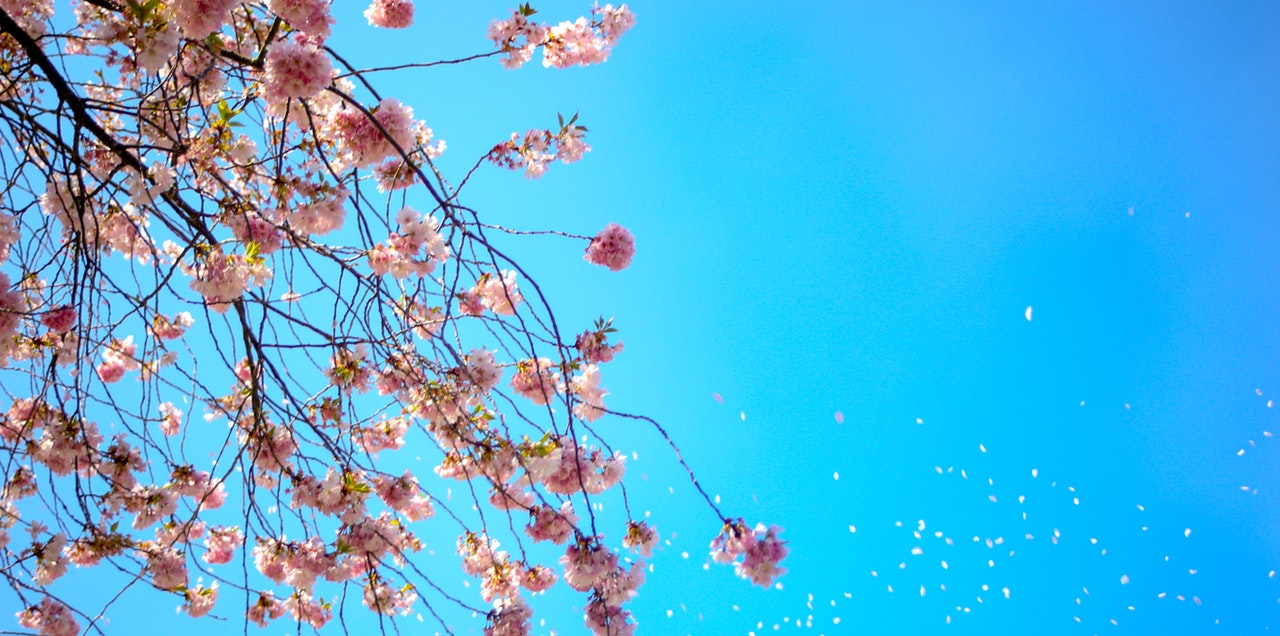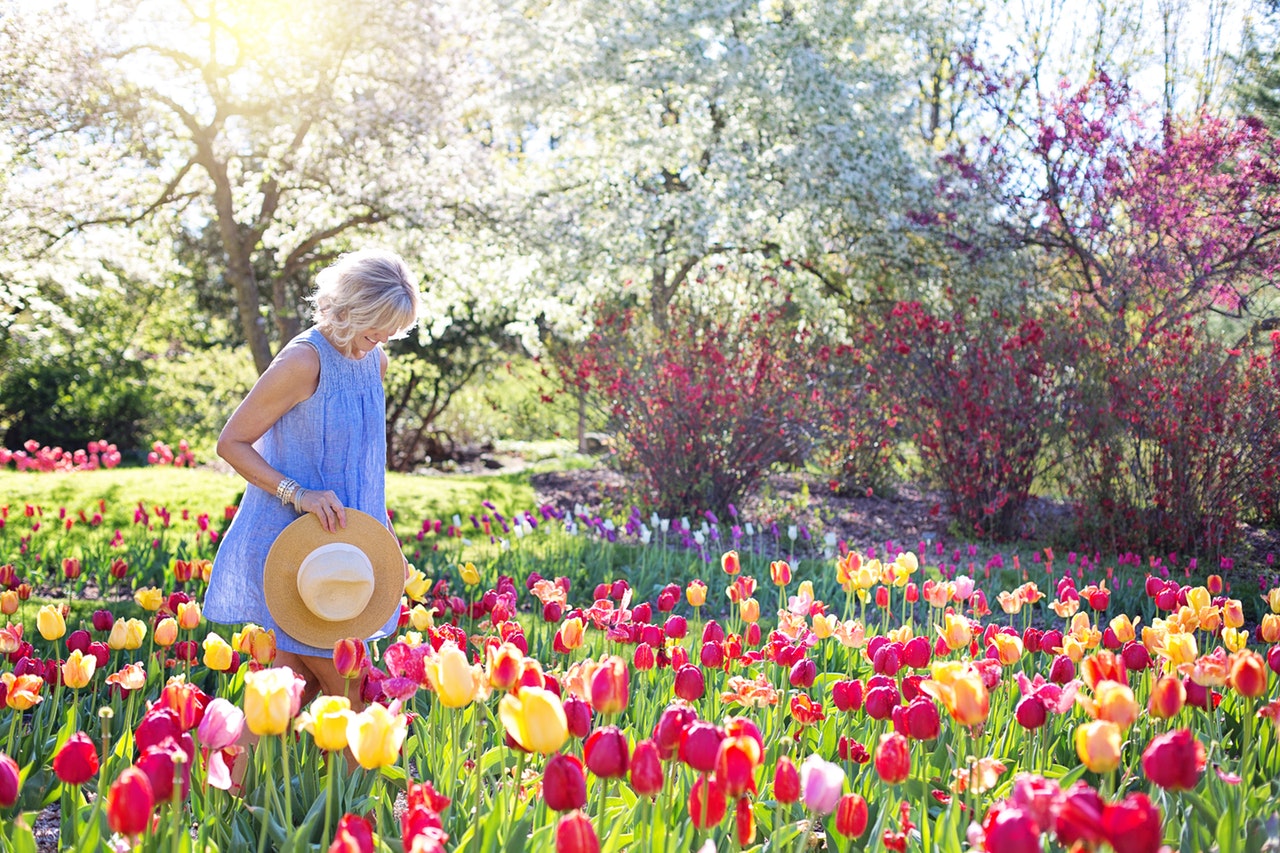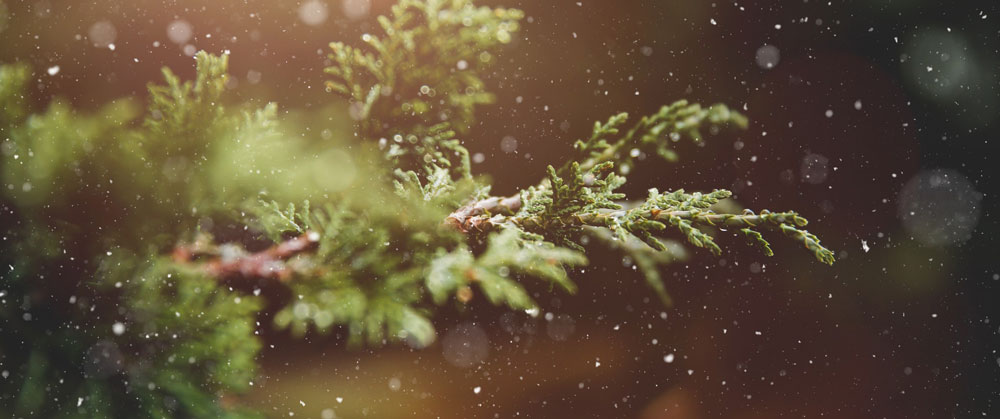Telehealth Available
- COVID-19 ADVISORY
-
 Integrated Acupuncture Services, PC
Integrated Acupuncture Services, PC
dba Central Coast Light TherapyLocated in beautiful Avila Village!
6639-A Bay Laurel Place
Building 7
Avila Beach, CA 93424-757805-705-1792
Clinic Days:
(Designated Essential Worker and Business)
Monday - Thursday
11:00 a.m. - 5:00 p.m.
Closed Weekends and Holidays!
Follow Us!
-
- Sign up to receive news and updates and get my free report:“The Top 10 Reasons to Try Acupuncture”

- Testimonials
Dr. Mary is amazing! I was experiencing debilitating lower back issues and electric jolts pain into my left thigh and quad. After each treatment (total of 4) I could feel the relief. I was living on Tylenol/Advil which I knew I had to get off for any real progress. This week was a huge breakthrough. I am sleeping through the nights and moving all day(s) without pain meds. I can feel the healing. I appreciate your knowledge and explanations throughout
... Read more »Good morning Mary,
I had such a good night last night! I went to bed at 10 p.m. fell right asleep, only woke up once at 2 to use the bathroom and went right back to sleep until 6 a.m. I haven’t slept this good in the last two weeks.
Very grateful for all your help and advice!
Mary – I can’t express my gratitude enough for all the care and support you’ve been giving me. It has made all the difference in my well being and health these last few months.
Gratefully yours,
PI was so pleased with how my skin improved after 1 appointment that I had to share a few comments. My skin looked noticeably smoother and more firm, plus had a nice healthy glow to it which my husband had noticed. I’m 53 and my skin is showing many fine lines and beginning to sag in the eyelids, jaw and neck areas. I want to keep a healthy appearance without fillers etc. and feel that facial acupuncture rejuvenation is without
... Read more »You, my friend, are a wizard! I came home yesterday, napped for an hour, but still felt a little tired. Went to bed about 11 pm, and slept the best I have in years! Didn’t even get up to go to the bathroom. The hardest I’ve slept in a very long time. I feel so much better today! Thank you! See you next week!
MM, Los Osos, CA
Hello Mary, Just wanted to let you know today’s TX was the best yet. Low back pain was interrupting my ability to stand this morning and it’s gone. Bruised rib cage is so much better. Completely different afterwords from prior apts. Thank you again. JBought this service to help boost my weight loss as I had run into a stall. Not really knowing much about light therapy I came in hoping I might lose a few pounds and tighten some loose skin around my stomach. Mary gives you a packet guide and tells you to detox and diet in combination with the light therapy to help boost weightloss. I did not do this part of the plan, I have been doing the Keto/Paleo Diet
... Read more »Dr. Mary Mees is wonderful, and I’ve discovered unanticipated benefits from her light therapy. Beyond the 1/2 hour of complete relaxation (and being able to button my pants more easily after her treatment!), my face feels smoother and has a little glow to it. Most impressive though -and totally unexpected, I went in for the regular treatment with a shoulder injury and the light therapy completely relieved it. This is some good stuff, Man!!
Mary is wonderful. She’s such a delight and the treatment really works too! I had 4 sessions before my wedding day and they made such a difference. I felt better and looked better.
Dr. Mary is a beautiful spirit, so full of knowledge and skill. Her facility is a beautiful, peaceful atmosphere and also private. I have had many unexpected benefits from the light therapy as well as her sharing her wisdom. I am grateful for her and her practice.
-
Latest Articles:
- • 10 Family-Friendly Activities Perfect for Spring •
- • 3 Easy Spring Dinner Ideas for a Fresh and Flavorful Season •
- • 5 Tips to Boost Your Spring Wellness Routine •
- Find out how Cosmetic Acupuncture and Microneedling can help you achieve more radiant, youthful skin!
Health WellNews
Acupuncture and Hay Fever
Hay fever, which is medically termed allergic rhinitis, is an ailment that affects nearly 20 million people in the United States, according to the Centers for Disease Control. Hay fever is actually an allergy caused by pollen or dust, which causes the mucous membranes of the eyes and nose to become itchy and inflamed, resulting in sneezing, a runny nose and watery eyes. Hay fever is the fifth most common disease in the United States and it tends to affect people during three out of the four seasons in the year. There are multiple over-the-counter medications to treat hay fever, including antihistamine sprays, eye drops and nasal corticosteroids.

The problem with most of these suggested treatment methods is they all have adverse side effects. Traditional Chinese Medicine (TCM), however, can treat the symptoms without any harsh side effects. A TCM practitioner has a whole host of modalities in their toolbox that can help the hay fever sufferer. This includes acupuncture, herbal formulas and nutritional counseling. When these tools are used in conjunction, studies have shown hay fever sufferers may experience a significant drop in their symptoms.
According to TCM theory, hay fever is usually attributed to a deficiency of the body’s essential energy or Qi (pronounced “chee”), coupled with an invasion of wind heat in the lungs. But every patient is different and symptoms may differ from person to person. For most hay fever sufferers, TCM treatments will aim to open the lungs and expel the wind heat.
Acupuncture is a holistic medical technique that uses hair-thin solid stainless steel needles to stimulate acupressure points on the body. These acupressure points can do many different things, including reducing inflammation, decreasing lacrimation (watery eyes) and relieving sneezing. According to one study done by the Lishui Hospital of Traditional Chinese Medicine, when acupuncture was used as a standalone therapy, the participants reported a nearly 67 percent decrease in their symptoms. When herbal formulas were added, that efficacy rate increased to over 71 percent.
There are several herbal formulas that can be used to treat hay fever. The one used, will depend on the specific symptoms of the patient. However, the base formula frequently used is known as Cang Er Zi San. The herbs in this formula can unblock the sinuses and alleviate pain. The biggest difference between over-the-counter remedies and TCM herbal formulas is the formulas can be changed as the person’s symptoms change.
Acupuncture improves the Qi throughout the body by stimulating the body’s own internal regulating systems. This will then allow the body to heal itself, by strengthening the body’s resistance and regulating the antigen/antibody reaction created by the body when it encounters pollen or dust that may trigger the hay fever attack. And since hay fever is attributed to having a weak immune system in TCM, the herbs usually given will help support and strengthen the person’s immunity.
This is also where nutritional counseling may play a part because many foods can create phlegm and dampness that exacerbate a person’s symptoms. Things like dairy and excess sugar may need to be avoided during the flare-ups. Also foods that generate or create heat are usually not advised. However, drinking plenty of water is always a good idea.
We can help determine if you are a good candidate for treatments and also help you to avoid suffering in the first place, as this medicine can and should be used as preventive medicine.
Acupuncture and Maintaining Healthy Skin
Health is something most people strive for every single day. Our skin is the outward expression of how healthy or unhealthy we are. And while many people believe makeup is the ultimate way to enhance your appearance, many times it is only hiding underlying health issues. Vanity is a virtue that can be quite unbecoming, expensive and time consuming. In the United States alone, people are expected to spend nearly $11 billion on skin care by 2018, according to Global Cosmetic Industry Magazine. And all of the money being spent is out of pocket, meaning technically it is considered a luxury item and not a necessity.

Healthy skin is something that can be representative of much more taking place inside the body. When our skin is dry, cracked, dull, lackluster or covered by acne, it can indicate serious imbalances within the body. This is where things like acupuncture and Traditional Chinese Medicine can be very beneficial. Cosmetic acupuncture is considered the truest form of anti-aging medicine because it improves the look of the skin, while still optimizing overall health. Beauty and health are inseparable and therefore, they should be addressed together.
Cosmetic acupuncture still follows all the same principles of Traditional Chinese Medicine. Acupuncturists specializing in cosmetic acupuncture do a thorough intake and health assessment to determine any internal imbalances. And while the ultimate goal for the patient is to have healthier looking skin, the acupuncturist will treat according to the internal imbalances. Once these imbalances are corrected, the skin will become healthier. This is not to say that cosmetic acupuncturists don’t directly treat the visible skin issues, because they do.
Cosmetic acupuncture utilizes tiny sterile needles placed in and around areas of the skin that may be dull, saggy, wrinkled, inflamed or even have some sort of deformity. The insertion of these needles will do a couple of things that help the skin to heal. First, the needles will activate collagen production in areas that have become sunken or wrinkled. This will help to fill in those areas and decrease the lines. Secondly, the needles will stimulate an immune response. This triggers the body to send immune cells to the affected areas, thus signaling molecules like growth factors and cytokines, to repair the skin.
However, cosmetic acupuncture cannot be relied upon completely to help the skin repair and replenish. Most cosmetic acupuncturists will also coach their patients about proper diet and other health issues that may be contributing to the appearance of the skin. For instance, did you know excessive stress can actually cause us to age faster and look older? This is another way that acupuncture can help keep the skin healthy. When a person is extremely stressed, the body reflects it through the skin. Stress can cause breakouts due to an increase in hormones, making the skin oily and decreasing the body’s defenses against bacteria. This is why adequate sleep is so important.
Improper diet is another area a cosmetic acupuncturist may discuss and one that is vital for healthy skin. Things like green tea, vitamin C and Omega-3 fatty acids are wonderful items to add to the daily diet if you are trying to keep the skin healthy. Green tea is full of antioxidants and anti-inflammatory components that help soothe and reduce skin redness. Vitamin C has been shown to increase collagen production, especially when applied topically. But taking Vitamin C internally also increases antioxidants that keep the skin healthy. Lastly, Omega-3 fatty acids, help keep the skin looking youthful, while retaining its elasticity.
Cosmetic acupuncture is a quickly growing sector of Traditional Chinese Medicine. If you are dealing with any kind of skin issue and looking for a natural way to treat it, finding a licensed acupuncturist would be a great place to start. Your skin and body will thank you.
Three Ways to Alleviate Stress in Under 10 Minutes
We all have stress. Stress at work, stress at home, stress, stress, stress. And most of us know how harmful chronic stress can be to our bodies and minds. Stress can cause us to become fatigued, irritable, sad, restless, anxious and unmotivated. It can also lead to detrimental habits like smoking, drinking, drug usage and overeating.

What if you could combat and alleviate stress in 10 minutes or less? Your body, family, friends and coworkers would probably thank you. So, let’s explore three easy ways to fight off everyday stress.
Meditation
Meditation can help relieve symptoms of stress in as few as five minutes. Anybody can practice meditation and it can virtually be done anywhere. It’s simple, inexpensive and you won’t need anything special to practice. Meditation produces a state of relaxation while calming the mind. It allows you to focus your attention on peacefulness instead of the hectic everyday life most of us live. There are tons of books, magazine articles, apps and videos explaining how to meditate. One of the easiest forms of meditation is using a guided meditation video or recording. You can find numerous options online. There are also many different forms of meditation, such as walking meditation, mandala coloring meditation, yoga meditation and even Qi Gong. Explore and see what form resonates with you best. You can also choose more than one type and interchange them for even better results.
Breathing
Deep breathing relieves stress by activating our natural relaxation responses. Relaxation responses are the exact opposite of our body’s stress response. Deep breathing is a relaxation technique that brings your body and mind into an equilibrium state. The deep breathing technique is very simple. One sits comfortably with the back straight and then proceeds to breathe. The breaths should be very deep and felt in the center of the abdomen. Breathe in through your nose and out through your mouth. As you breathe in, your abdomen should expand accordingly. The breath should be let out slowly and with purpose. You can also silently count to 10 on each inhalation and exhalation. This practice works really well in an office setting where you only have a few minutes to spare. Give it a try.
Acupressure
Acupressure can help alleviate stress anywhere and many times, nobody will even know you’re doing it.
Acupressure utilizes acupuncture points on the body, but without the deeper stimulation that occurs when acupuncture needles are used.
There are several points on the body you can use to combat stress. All of the points about to be mentioned can be either pressed upon or tapped upon lightly. The first point is located between the breasts, level with the nipples, directly over the sternum or breastbone. Applying pressure or tapping this point will help relieve stress felt in the chest and back areas. The next point is located in the webbing between the thumb and forefinger. This point helps relieve muscle tension associated with stress and it’s great for pain located anywhere in the body. Finally, try the point located directly between the eyebrows, known as Yin Tang. This point will help calm your mind and reduce overall stress. It is also great for tension headaches and eye strain associated with excess stress levels.
There are many ways to alleviate stress. Most can be done fairly quickly and without drawing too much attention to yourself. Investigate the options and decide which method works best for you. Happy relaxing!
Five Reasons to Try Acupuncture This Summer
Summer is a time of abundant energy, sunshine-filled days and warmth. In Traditional Chinese Medicine (TCM), summer has many different associations that help define it. The element of summer is fire, the color of summer is red, the emotion of summer is joy and the governing organs are the heart and the small intestine.

The Traditional Chinese Medical System relies heavily on the five elements and how they work and interact within the body. In TCM, there are multiple levels. The first is yin and yang. At the most basic level, yin is like water and yang is like fire. As mentioned, fire is the element of summer. Fire is yang in nature, which means it is symbolic of maximum activity. During the summer months, everybody and everything is more outgoing or outward in nature. And as the heart is the main organ associated with the season of summer, it should be given close attention and nourished to remain healthy.
One of the most common problems that arises during the summer months is insomnia. The kids are out of school, it stays light longer and there are more activities the whole family can participate in, so people tend to get to bed later and wake up later. This can lead to insomnia and other sleep issues. Acupuncture, which is just one modality used by TCM, is a great way to help control sleep issues. It helps balance hormones that can be out of whack, allowing for better sleep.
For many people, headaches occur more frequently during the summer months. The reason being is the higher temperatures actually cause the blood vessels in the head to expand, which applies more pressure against the nerve endings. Also dehydration can lead to summer headaches. If dehydration is the cause, the best remedy is drinking water or eating foods that have a high water content, like watermelon and cucumber. However, if the headaches are caused by excess pressure, acupuncture can help with that. Not only can acupuncture lower blood pressure, but it can also calm the over-excited nerve endings.
Another common ailment during the summer is the infamous heat rash, otherwise known as prickly heat. This usually occurs on areas of the body covered by clothing, where lots of sweat is produced. While most heat rashes disappear in a few hours or days, they can still be quite uncomfortable. Acupuncture can help decrease the inflammation and itching associated with heat rashes in just one or two treatments.
As odd as it may seem, summer can also be a time when people contract colds. Common summer situations like air conditioning, traveling and airplane flights can cause a summer cold and also make the symptoms worse. While colds usually have to run their course, acupuncture can help shorten the length of the cold and drastically decrease the symptoms.
Hay fever and allergies often occur during the summer months because of the fluctuating pollen levels. Getting regular acupuncture treatments before and during the season of summer can be very beneficial for those who are affected by allergies and hay fever. Acupuncture helps control the sneezing, runny nose and watery, itchy eyes, common symptoms for allergy sufferers.
Traditional Chinese Medicine and Spring
Spring is generally regarded as a happy season, especially for those that live in areas where winter is cold and dark. Spring brings with it longer days, more sunshine, the rebirth of plants and more activity. But for many, the months of spring can also bring irritability, anxiety, sinus issues, allergy flare-ups and even colds.

Traditional Chinese Medicine (TCM) has been around for nearly 3,000 years, which gives the medical system, as a whole, a lot of credibility. TCM classifies things in many different ways. There are five seasonal associations in TCM – winter, spring, summer, late summer and fall. Each season has its own unique set of properties and associations. Spring is associated with the wood element. The wood element governs the liver and the gallbladder and their energetic pathways in TCM. The five seasons and their corresponding elements interact with one another daily, creating balance and harmony or complete chaos within the body.
The season of spring is a time of expansive movement and growth. Spring is a time of creativity and planning. Since the liver and gallbladder are associated with the tendons and are responsible for the smooth flow of energy and blood throughout the body, our daily activities should reflect this. Being more active and spending more time outside can be great ways to strengthen the liver and gallbladder energies during the months of spring. We should imitate the budding trees and flowers and allow ourselves to grow and reach for bigger and better goals during the spring.
The color green is the color of spring in TCM. During these months, fresh greens are abundant. It is highly recommended that we incorporate more fresh greens into our daily diets. Greens have been shown to be very beneficial for helping the liver do its job, detoxifying the blood. Dandelion greens, in particular, are a good source for detoxification, which ultimately strengthens the liver and gallbladder meridians.
It is also recommended to avoid excessive stimulants during the spring months. Things like coffee are considered expansive and energizing, which can be somewhat helpful during the cold winter months. But during the spring, when life is abounding, excess energy can actually be harmful to the body. It can create headaches, insomnia, anger and more.
When a person is completely balanced, transitioning from one season to another is not such a big deal. However, knowing what elemental type you are can also be very beneficial in determining how you will react to each passing season. For instance, a person who has a wood element constitution, may experience anger during the spring. This is because the wood element is already closely associated with the emotion of anger and spring brings added stimuli that can trigger fits of rage.
One way to keep the body balanced is through acupuncture and TCM. The body is designed to maintain proper balance, but we tend to not pay attention to the warning signs until we experience pain or illness. Getting regular acupuncture treatments can work as preventive medicine, providing harmony throughout every season of the year.
If you experience feelings of anxiety, anger or even self-loathing, acupuncture can help. It can also help with those seasonal allergies that might flare up. Acupuncture is a wonderful way to maintain health and balance all year long. Be sure to find a fully licensed acupuncturist in your area, so you can enjoy spring without any emotional or physical impairments.
Reasons You Should Get Acupuncture This Spring
Muscles Feel Stiff and Tight: This can be caused from the lack of movement throughout the winter months. If this is something you experience at the beginning of spring, then acupuncture can help. The liver and gallbladder nourish the tendons, ligaments and connective tissues throughout the body. During the winter months, many people forget to drink water and this can affect the muscles and joints. Acupuncture can actually stimulate the flow of blood to the muscles and joints which allows them to heal and become flexible again.
Irritability or Anger: Many people report they feel irritable or angry during the spring. This is because the emotion associated with the liver is anger. When the liver is imbalanced, the emotions can become stagnant. Acupuncture is a great way to balance the liver and the emotions.
Eyes are Irritated: The liver, the organ associated with spring, opens to the eyes. Therefore, any issues related to the eyes and eye health are usually attributed to liver imbalance. This may include dry eyes, eye fatigue, allergies and pain. Studies have shown acupuncture is more effective than Western Medicine and over-the-counter medications for eye issues.
Does Your Liver Need a Spring Tune-Up?
In Traditional Chinese Medicine, each season is ruled by a particular organ system and spring is connected to the liver. What does this mean? Well, you probably notice changes in the way you feel, both physically and mentally, as the seasons change. We tend to feel a bit more contemplative and introspective during the winter months. Once spring hits, we’re ready to recharge and get things done. The liver energy is strong and assertive, the type of energy you need to create plans and then propel them into motion. However, if your liver is a little out of balance, you might notice you are more irritable or on edge than usual.

Here Are a Few Signs That Your Liver is in Need of an Acupuncture Tune-Up:
1. You’ve noticed an increase in headaches lately, and these headaches seem to feel worse when you aren’t active. Generally these headaches tend to manifest at the vertex of your head.
2. You might begin to feel constipated or bloated. Your bowel movements might become irregular, alternating between constipation and loose stools. Hard, difficult stools that appear pebbly are also a sign of liver imbalance.
3. Your friends or coworkers are scared of you, because you are cranky, cranky, cranky. When liver energy is out of balance, you might feel agitated, irritated and generally out of sorts. Sometimes irritation can expand into outright anger more easily than it would if this energy was flowing smoothly.
4. Ladies, you may notice your PMS symptoms have been worse lately. Bloating, breast tenderness, sensitivity…you can blame all of the above on your liver. If your periods are more painful or clotted, this is also due to a stagnation of liver energy.
5. Your eyes are red, itchy or irritated.
6. Your shoulders, neck or jaw are uncomfortably tight. If the liver energy is out of balance, it can flow upward. This causes everything in your body to rise up: you might grind or clench your teeth, your shoulders will levitate up around your ears, and you might experience symptoms of Temporomandibular joint dysfunction (TMJ)
7. Your allergies are in full force, complete with itchy, red, watery eyes.
If you are suffering from any of these issues, your body is crying out for a visit to your acupuncturist!
Ways to Shui Your Day
Feng Shui (pronounced “fung shway”) is defined as a Chinese system of laws that govern the spatial arrangement and orientation in relation to the flow of energy and whose favorable or unfavorable effects are taken into account when designing buildings or laying out floor plans. In layman’s terms, it means balancing the energies of any given space to assure health and good fortune for those living there. Feng translates into wind and shui translates into water. So when there is good feng shui, a person or place is considered healthy and when there is bad feng shui, there may be disease and disaster.
Create A Sacred Space
Having a place where you can feel peaceful is essential. This space should be intended for meditation and inner reflection. It should be comfortable, quiet and calming. In this space, you should try to focus on your breathing and silently repeat a mantra to yourself.
Complete Unfinished Projects
If there are things around the house that need to be completed, take the time to do them. Hang those pictures, unpack those boxes, fix that leaky faucet or change that burnt out lightbulb. By leaving things undone, your energy can become depleted and you set up barriers keeping you from doing the things you love.
End Each Day With Rituals
Just as you did in the morning, establish rituals to end your day, de-stress and bring about peaceful sleep. Allow yourself at least one hour of time without any television or computer, so that your mind and body can start to unwind. In your journal, write down three to five things you appreciated over the past 24 hours. And most of all, say a prayer of thanks. Gratitude is the most important thing you can do to bring positive energy into your daily life.
Acupuncture: The Liver and Spring
There is a lot of history and theory behind Traditional Chinese Medicine (TCM) when you consider it is a medical system about 3,000 years old. There are five elements and five seasons in TCM. Each element has numerous associations that relate it to the theory of TCM. The elements and their associations provide one way for TCM practitioners to diagnose the ailments of their patients.

The season of spring is the season of the wood element and the liver energetic pathway. Spring is a time of growth and this is evident by all the plants and flowers coming into bloom, as well as the wildlife awakening from the winter slumber. Spring is the time of birth and regeneration. This season tends to be trademarked by optimism and opportunity.
Spring is linked to the wood element in TCM due to the prospects of growth and development. When a tree is nourished properly, it will grow and expand. This is very similar to what happens with the body and spirit within every living being. Just like the wood that makes up the trunk of the tree, we must be able to be flexible and bend, always changing and adapting to whatever comes our way. We need to remain strong and rooted, yet able to give a little if needed.
Wood element people tend to be well motivated and organized. They are planners and doers, always having things mapped out and ready for any situation. These people are completely dedicated to anything they pursue. They tend to initiate creativity and walk a path towards success. However, wood element people can be very vulnerable in their livers. In TCM, the liver and its energetic pathway deal with the ability to freely express emotions and anger is the emotion linked to the liver. When feelings are suppressed or blocked, physical symptoms like hopelessness, indigestion, bloating and resentment can manifest.
The color green is beneficial to supporting the liver’s detoxification function and it also strengthens vision. Incorporating green foods will greatly improve the function of the liver and help keep the wood element personality balanced. And as spring is the time of year when there is an abundance of fresh greens available, it makes perfect sense to incorporate them into the daily diet more regularly.
Along with eating more greens during the spring, it is recommended other healthy habits be incorporated as well. Regular stretching is a good way to start and end the day. The liver controls the tendons in TCM, storing blood during periods of rest and releasing it to the tendons during times of activity. Adding yoga or tai chi into the daily routine can be very beneficial for the liver, tendons and the whole body.
Drinks and foods that are sour are believed to stimulate the liver’s healing abilities. Adding lemon slices in your drinking water or using vinegar and oil as a salad dressing are some good examples. However, if you are a person that has anger issues, sour tastes should be avoided, as this can send the liver into overdrive.
When the weather warms in the spring, it is a great time to be more active outdoors. Fresh air helps the liver to function properly and decreases any stagnation being experienced in the body. This can help with anger issues too.
As with any seasonal change, adding acupuncture treatments can be a huge asset, but especially in the transition from winter to spring. Due to the winds picking up and the weather becoming warmer, things like bell’s palsy, allergies or sinus infections can become more prevalent. Using acupuncture as preventive medicine can vastly improve your chances of remaining healthy throughout the transition. So for the sake of your liver and your overall health, be sure to connect with a locally licensed acupuncturist today. You won’t regret it.
Five Acupuncture Points for Winter
Winter is a word that conjures up many different images, including snowmen, sleigh rides and holidays. During the winter months, nature is resting and replenishing itself for the upcoming spring. And as we are part of nature, we should also be focusing on rest and relaxation.

Traditional Chinese Medicine (TCM) teaches that we should live in harmony with the seasons. When we don’t, that’s when disease and illness occur. Living in harmony with the season of winter means we should avoid eating excessively cold or raw foods, we should focus our attention inward and we should make time to relax and rejuvenate our bodies.
Winter is associated with the element of water, the kidneys and the urinary bladder. The kidney energetic pathway opens to the ears and therefore, they should be protected from the cold that occurs during the winter months. Every major organ in the body is also assigned an energetic pathway in TCM theory. These pathways allow energy or Qi (pronounced “chee”) to flow throughout the body, which keeps everything functioning properly. When the Qi becomes deficient, stagnant or blocked, then disease can develop. During the season of winter, this may manifest as ear aches, low back pain, knee pain, urinary issues, anxiety or fatigue.
To keep the kidney and urinary bladder functioning properly within the TCM system, things like acupuncture, herbal formulas, nutritional counseling and practices like qi gong or tai chi may need to be incorporated. There are over 350 acupuncture points on the body, but there are some that work exceptionally well during the winter season to help keep the body free from disease.
KIDNEY 3 – This point is located bilaterally on the inner lower leg, in the depression just behind the medial malleolus. Kidney 3 is a very important point that can help with everything from low back pain to ear aches.
SPLEEN 6 – This point is located bilaterally on the inner lower leg, about three thumb-breadths above the inner malleolus. Spleen 6 can help improve immune system function and fight fatigue.
LIVER 3 – This point is located bilaterally on the top of the foot, in the depression about one thumb-breadth from the edge of the webbing between the first and second toes. This point can be used to decrease headaches and help with some urinary issues.
STOMACH 36 – Located bilaterally on the outer lower leg, it can be found one finger-breadth from the border of the upper tibia and about three thumb-breadths below the lower border of the knee cap. Stomach 36 is known as the longevity point in TCM and is frequently used by practitioners. It can help with fatigue, dizziness and knee pain.
URINARY BLADDER 23 – Located bilaterally, on either side of the spine, it can be found one and a half thumb-breadths from the lower border of the second lumbar vertebra. Urinary Bladder 23 is another frequently used point that helps with deafness, dizziness, knee pain, low back pain and urinary issues.
Any of these points can be used alone or in conjunction with others. They can be manually stimulated using pressure from a finger or dull, rounded tool. But for best effects, it is recommended acupuncture be applied.
Fight Holiday Stress with Acupuncture
The holidays are supposed to be a time of joy, celebration and love. But for many, the holidays mean added stress, anxiety and lack of sleep. Some polls show Americans spend an average of 42 hours annually on holiday activities. This could be anything from shopping to traveling to preparing food. And all of that adds up to extra stress that deteriorates the body and mind. Mental and physical stress then translates into oxidative stress at the cellular level. Oxidative stress, over time, can actually lead to disease.

The good news is there are many ways to deal with and handle added holiday stress. One of these ways is through the use of Traditional Chinese Medicine (TCM). This medical system has been around for nearly 3,500 years and can greatly improve our quality of life. TCM is a holistic and natural way to combat anxiety and stress. Acupuncture is one of the modalities this medical system utilizes. Acupuncture has the ability to induce deep relaxation throughout the mind, body and soul. In fact, many people report falling asleep during their acupuncture treatments.
Numerous studies have been done to show how acupuncture can decrease stress. A study at Yale University showed auricular, or ear acupuncture, significantly lowered stress levels in mothers whose children were undergoing surgery. Multiple studies also confirm acupuncture can lower both systolic and diastolic blood pressure readings. And blood pressure is one of the first physical signs a person is stressed out.
In TCM, each season is associated with an element. Winter is associated with the element of water. Starting every day during the holidays/winter season with a large glass of room temperature water can not only keep the body hydrated, but it can also prevent added stress at the cellular level. From a metaphorical stance, water is calming to the mind and body. So when we feel that twinge of anxiety coming on, visualizing water, like an ocean or a lake, can actually help decrease the stress levels.
As mentioned above, chronic stress can lead to oxidative stress at the cellular level. Chronic pain sufferers can attest to how stress affects their bodies. For many people who deal with diseases like fibromyalgia, the excess stress around the holidays can actually increase the amount of pain in the body. Regular acupuncture treatments, even during the holidays can be very beneficial for those who have chronic health and pain issues. Acupuncture can reduce inflammation and relieve pain in as few as one to two treatments.
Another helpful tip to deal with holiday stress, is to get out in nature. Yes, it can be cold during the holiday season. However, studies show spending even as little as five minutes outside among nature can lower blood pressure and decrease stress. And what better way to admire the beautiful lights and decorations that frequent so many neighborhoods during this time of year, than to step outside for a breath of fresh air or a quick walk around the block?
Acupuncture is also a wonderful tool to combat Acupuncture is also a wonderful tool to combat insomnia that can frequently wreak havoc around the holidays. Traveling, packing and multiple holiday events can really interfere with getting a good night’s sleep. Acupuncture can definitely help with that. Because it is so relaxing, many people take healing power naps when they are receiving their acupuncture treatments.
Before the holiday season kicks in, contact a locally licensed acupuncturist to discuss how they can help you deal with stress and anxiety. You’ll be glad you did.
Acupuncture and the Season of Winter
Winter is just one of the five seasons acknowledged by Traditional Chinese Medicine. The ancient Chinese followed the belief humans should live in harmony with the cycles of nature. During the winter months, the darkness and cold indicate we should slow down, take care of our health, conserve our strength and replenish our energy for the upcoming spring and summer months. This is observed in the animal kingdom and it should also be considered a good rule of thumb for human beings.

Each season has multiple associations that help us adjust our habits as things change, which makes it easier to keep the body and mind balanced. Winter is ruled by the water element. The water element is associated with the kidneys and urinary bladder. According to TCM philosophy, the kidneys are the source of all energy found within the body. This energy, frequently called Qi (pronounced “chee”), is what keeps us alive and allows our bodies to function properly. During the winter months, it is vital that we nourish and nurture our kidney Qi.
Winter is typically a time when we decrease our daily activities. Because of this, we should also decrease the amount of food we eat to avoid gaining excess weight. It is also recommended excessively cold and raw foods be avoided or at least countered with things like hot tea. Cold and raw foods can deplete the Qii over time. This can lead to problems with digestion, sleep and much more.
It is suggested during the winter months, we should emphasize foods warming to the body. This includes things like soups, stews, root vegetables, beans, garlic and ginger. Also foods like whole grains and roasted nuts can help keep the body’s core warm, while providing healthy nourishment.
Aside from eating according to the seasons, there are also other things we can do to keep ourselves in tune with our environment, which will ultimately keep us healthy. TCM is a non-invasive way to build the Qi and keep the body functioning properly throughout the winter, as well as the other seasons.
TCM incorporates quite a few different modalities. Acupuncture is probably the most commonly known of these modalities and it is a wonderful tool for boosting and replenishing kidney Qi. Moxibustion is another TCM modality that involves burning crushed mugwort on acupressure points to help increase the core body temperature and keep blood circulating throughout all parts of the body.
There is also another form of Qi known as Wei Qi (pronounced “way chee”) that is frequently compared to our immune system. Regular acupuncture treatments, proper sleep, a healthy diet and exercise are all ways to keep the Wei Qi strong.
One of the most important things anybody can do during the winter months to stay healthy is drink plenty of water. Winter, in most places, literally drains the moisture out of the body. It is recommended that we drink at least 64 ounces of water per day, even during the winter months. However, the thought of drinking cold water in cold weather is a concept that tends to keep a lot of people clinically dehydrated during the winter months. This is why warm water with lemon or hot tea are good substitutes. We are still ingesting water, while avoiding the cold that could potentially damage our core.
By following the guidelines set forth by nature, we can also remain in balance with the natural world around us. This is how our ancestors did it and it served them quite well. Perhaps there is something to be learned from the wisdom our elders pass down through the generations, aside from just some intriguing tales.


